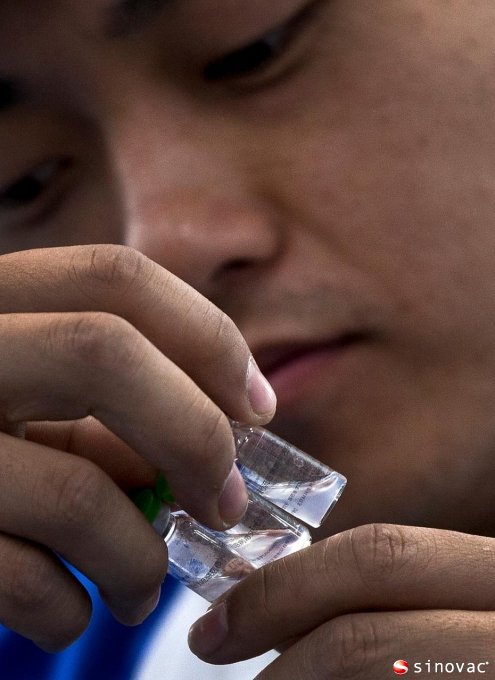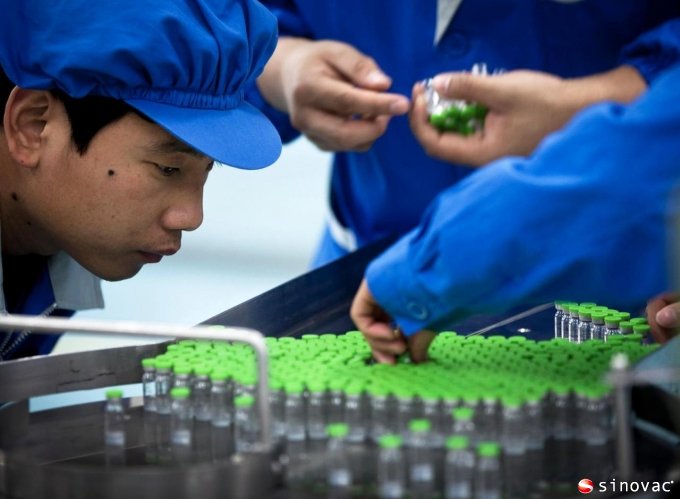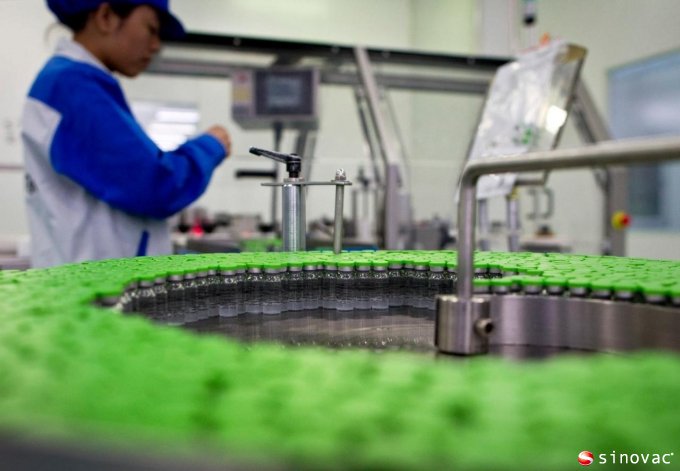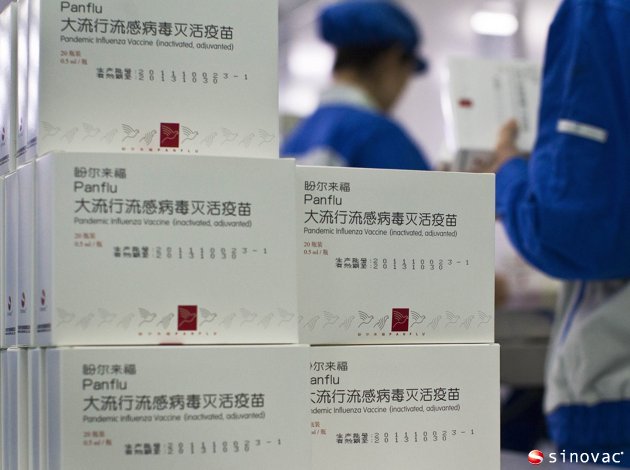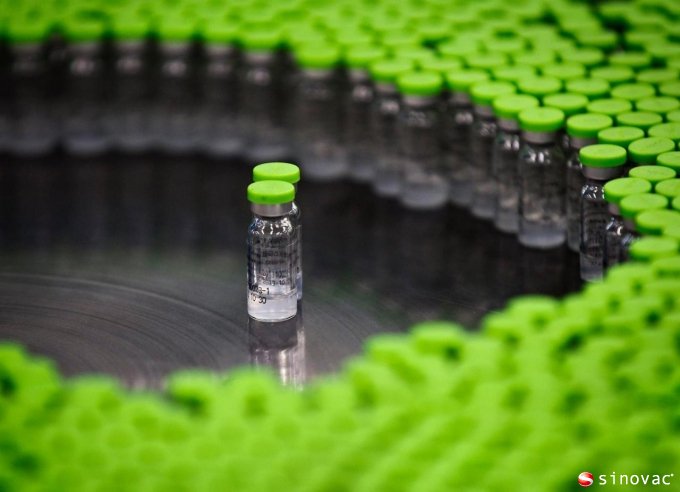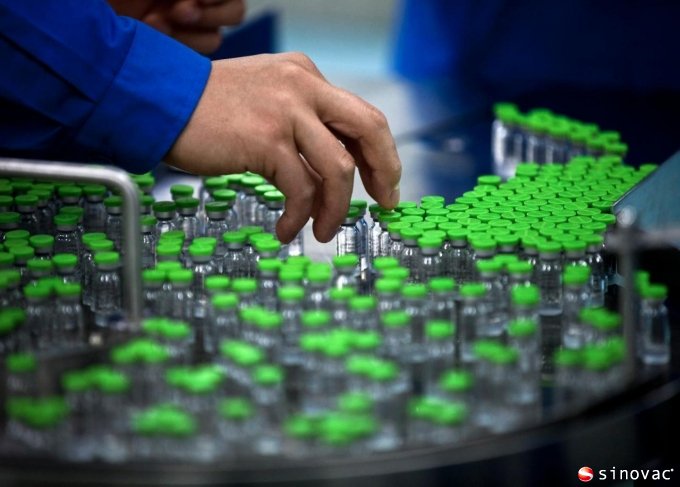[美联社]中国疫苗产品将有望跻身于全球市场
美联社记者 黄敬龄 2011年11月29日
世界应该为新的“中国制造”——疫苗做好准备。中国疫苗企业正准备在今后几年中加速推动其疫苗产品的出口,一方面中国可能将降低对世界不发达地区生命保障型疫苗出口的成本,另一方面,中国可能将依靠研发新型疫苗产品与西方制药巨头展开竞争。
然而,鉴于中国曾出现食品、药品及其他丑闻,安全一直是个敏感问题,某些国家接受中国疫苗尚需时间。尽管如此,全球疫苗免疫联盟(GAVI)政策主管尼娜•施瓦贝尔(Nina Schwalbe)认为,一旦中国进入疫苗市场,将有望"改变这个市场的游戏规则"(Game Changer)。全球疫苗免疫联盟每年都要为全球5千万儿童采购疫苗。她说:“我们对中国疫苗企业进入该市场的潜力非常感兴趣。”
中国疫苗企业曾于2009年备受全球关注。在当年新型病毒肆虐全球的时候,中国疫苗企业在仅仅87天中曾研制出世界首剂能够有效对抗猪流感的疫苗,为全世界控制流感病毒做出了卓越的贡献。而在过去,这项殊荣往往常由欧美国家获得。
今年3月世卫组织宣布,中国药品安全监管机构符合疫苗监管的国际标准。这为中国被联合国机构和全球疫苗免疫联盟采购敞开了大门。
中国食品药品监督管理局表示,中国是疫苗生产大国,拥有30多个厂家,年产量接近10亿剂。
但在纳斯达克上市的科兴控股生物技术有限公司(Sinovac)的杨光(Helen Yang)表示,仍需努力构建海外对中国疫苗的信心。
中国近年来的食品药品安全记录并不能提振人们的信心。北京为此实施了更严厉的监管,并加大处罚力度。但有专家认为,单靠监管机构无法防止制药厂制造假药。美国对外关系委员会的中国医疗专家黄炎中(音,Yanzhong Huang)说:“在美国有支持机制,如市场经济、民主、媒体监督、民权社会以及良好的企业道德准则,这些恰恰是中国所缺失的。对中国而言,构建强大的监管能力将是更为艰巨的挑战。”
去年,有中国报纸报道山西北部四个孩子的死亡与疫苗储存不当有关,这引起了全国范围的关注。虽然卫生部表示死亡并非由疫苗造成,但仍不能消除部分公众的怀疑。
与此同时,中国的研究人员今年早些时候在新英格兰医学杂志报告说,在2009年(给国庆阅兵相关人员接种的)90万剂H1N1大流行流感疫苗是安全的。
世卫负责免疫的官员Yvan Hutin(伊万·胡丁)则表示,认可中国药品监管机构并非“空头支票”。每种疫苗都将经过严格检测,世卫和中方监管官员会进入工厂检查。
在历史上,疫苗在西方世界一直是一个敏感的问题,安全问题和阴谋论盛行。有人声称麻腮风疫苗与孤独症有关,这场辩论辩论曾引发了20世纪90年代末对疫苗安全性的担忧。后来表明这种说法是不可信的。
对于中国来说,未来几年将是至关重要的。生物技术公司通过提升自己的设施及完善程序以满足安全和质量标准的过程中,预计所费颇多且具有挑战性。之后,他们将提交联合国卫生机构来批准疫苗的认证,这可能需要数年时间。
最有可能率先通过WHO预认证的是一种针对日本脑炎——一种由蚊子传播的疾病,它可引起癫痫,瘫痪和死亡——的本土疫苗。该疫苗已在中国使用二十余年,比其他公司的副作用要少。它的制造商预计世卫组织大约一年内就会批准。此外,在准备预认证的疫苗还包括针对脊髓灰质炎及两个儿童致死率最高的疾病——肺炎和导致腹泻的轮状病毒的疫苗。
疫苗同时也是比尔及梅林达·盖茨基金会一个3亿美元为贫穷国家健康和农产品发展合作项目的重要组成部分。
中国加入疫苗供应这一领域具有重要意义,因为平均每20秒就有一名儿童死于疫苗可预防疾病。联合国儿童基金会负责疫苗供应的负责人Shanelle Hall表示,基金会一直在与中国公司谈判,该基金会为全球近60%的儿童提供疫苗,是疫苗最大买家,去年用于疫苗购买的费用为7.57亿美元。
医疗市场研究公司Kalorama Information提供的数据显示,在全球范围内,去年的疫苗销量增长14%达253亿美元。那些面临仿制药激烈竞争的制药企业现在看到疫苗已经成为增长的关键领域,特别是在拉丁美洲,中国和印度等地。
中国的疫苗厂家,特别是那些已经实现小量出口的厂家,对于未来在该行业扮演重要角色充满信心。
国有企业——中生集团的副总经理吴永林表示,“我个人预计,未来5至10年,中国将成为全球重要的疫苗生产基地。”中生集团是中国最大的生物制品制造商,自1989年起就开始生产本国的脑炎疫苗。
吴永林说,中生集团从现在到2015年将投资超过100亿元人民币(15亿美元)以改善其设施和系统,以满足世卫组织的要求。该公司还计划向WHO提交针对每年造成50万儿童死亡的轮状病毒以及脊髓灰质炎的疫苗的预认证申请。
除了国有企业,规模较小的中国私人公司也正在将目光投向全球市场。
杨介绍说,Sinovac目前正在进行肠道病毒71型疫苗的临床试验,该疾病在中国和其他亚洲国家造成严重的手足口病。该公司同时也在为肺炎球菌疫苗的临床试验作准备,这可能成为辉瑞沛儿的竞争对手,该疫苗去年全球销售超过了37亿美元。
感染肺炎球菌可能会导致脑膜炎,肺炎和耳部感染。
“在短期内,每家企业都能看到出口机会,因为在中国以外地区,整个疫苗市场似乎被几家大制药厂所垄断。”杨说。
中国公司的进入将进一步给西方制药公司带来降价压力。今年早些时候,儿童基金会公布的疫苗采购价格显示西方制药公司疫苗价格往往是印度及印尼公司价格的两倍。
无国界医生组织批评GAVI花费数亿美元从西方公司购买预防肺炎的疫苗,称这些钱应该花在更有价值的地方,比如用于促进中国等新兴疫苗制造国的竞争能力。
GAVI的施瓦贝尔说,他们只能购买市场上可获得的疫苗并且尽力协商以获得较大的折扣。“我们需要现在购买疫苗以挽救儿童的生命,我们不能等待。”
英文:
China prepares for big entry into vaccine market
GILLIAN WONG, Associated Press
|
In this photo taken on Thursday, Nov. 24, 2011, a worker inspects the label on vials containing H5N1 flu vaccine produced by Beijing-based drug maker Sinovac Biotech Ltd. in Beijing. The world should get ready for a new Made in China product, vaccines. After years of supplying its own market, China's vaccine makers are gearing up to push exports in a move that should lower costs of lifesaving immunizations for the world's poor and provide major new competition for the big Western pharmaceutical companies. Photo: Andy Wong / AP
|
;
BEIJING (AP) — The world should get ready for a new Made in China product — vaccines.
China's vaccine makers are gearing up over the next few years to push exports in a move that should lower costs of lifesaving immunizations for the world's poor and provide major new competition for the big Western pharmaceutical companies.
However, it may take some time before some parts of the world are ready to embrace Chinese products when safety is as sensitive an issue as it is with vaccines — especially given the food, drug and other scandals the country has seen.
|
In this photo taken on Thursday, Nov. 24, 2011, workers inspect labels on vials containing H5N1 flu vaccine during production at the Beijing-based drug maker Sinovac Biotech Ltd. in Beijing. The world should get ready for a new Made in China product, vaccines. After years of supplying its own market, China's vaccine makers are gearing up to push exports in a move that should lower costs of lifesaving immunizations for the world's poor and provide major new competition for the big Western pharmaceutical companies. Photo: Andy Wong / AP
|
Still, China's entry into this market will be a "game changer," said Nina Schwalbe, head of policy at the GAVI Alliance, which buys vaccines for 50 million children a year worldwide.
"We are really enthusiastic about the potential entry of Chinese vaccine manufacturers," she said.
China's vaccine-making prowess captured world attention in 2009 when one of its companies developed the first effective vaccine against swine flu — in just 87 days — as the new virus swept the globe. In the past, new vaccine developments had usually been won by the U.S. and Europe.
Then, this past March the World Health Organization announced that China's drug safety authority meets international standards for vaccine regulation. It opened the doors for Chinese vaccines to be submitted for WHO approval so they can be bought by U.N. agencies and the GAVI Alliance.
"China is a vaccine-producing power" with more than 30 companies that have an annual production capacity of nearly 1 billion doses — the largest in the world, the country's State Food and Drug Administration told The Associated Press.
But more needs to be done to build confidence in Chinese vaccines overseas, said Helen Yang of Sinovac, the NASDAQ-listed Chinese biotech firm that rapidly developed the H1N1 swine flu vaccine. "We think the main obstacle is that we have the name of 'made in China' still. That is an issue."
China's food and drug safety record in recent years hardly inspires confidence: in 2007, Chinese cough syrup killed 93 people in Central America; one year later, contaminated blood thinner led to dozens of deaths in the United States while tainted milk powder poisoned hundreds of thousands of Chinese babies and killed six.
The government has since imposed more regulations, stricter inspections and heavier punishments for violators. Perhaps because of that, regulators routinely crack down on counterfeit and substandard drugmaking.
|
In this photo taken on Thursday, Nov. 24, 2011, a worker inspects vials containing H5N1 flu vaccine produced by Beijing-based drug maker Sinovac Biotech Ltd. in Beijing. The world should get ready for a new Made in China product, vaccines. After years of supplying its own market, China's vaccine makers are gearing up to push exports in a move that should lower costs of lifesaving immunizations for the world's poor and provide major new competition for the big Western pharmaceutical companies. Photo: Andy Wong / AP
|
While welcoming WHO's approval of China's drug safety authority, one expert said it takes more than a regulatory agency to keep drugmakers from cutting corners or producing fakes.
"In the U.S., we have supporting institutions such as the market economy, democracy, media monitoring, civil society, as well as a well-developed business ethics code, but these are all still pretty much absent in China," said Yanzhong Huang, a China health expert at the Council on Foreign Relations. "For China, the challenge is much greater in building a strong, robust regulative capacity."
Last year, a Chinese newspaper report linked improperly stored vaccines to four children's deaths in northern Shanxi province, raising nationwide concern. The Health Ministry said the vaccines did not cause the deaths, but some remained skeptical.
Meanwhile, Chinese researchers reported in the New England Journal of Medicine earlier this year that a pandemic flu vaccine given to 90 million people in 2009 was safe.
WHO's medical officer for immunization, Dr. Yvan Hutin, said WHO's approval of the Chinese drug regulatory agency is not "a blank check." Each vaccine will be evaluated rigorously, with WHO and Chinese inspectors given access to vaccine plants on top of other safety checks, he said.
|
In this photo taken on Thursday, Nov. 24, 2011, workers prepare to wrap the packages containing vials of H5N1 flu vaccine produced by Beijing-based drug maker Sinovac Biotech Ltd. in Beijing. The world should get ready for a new Made in China product, vaccines. After years of supplying its own market, China's vaccine makers are gearing up to push exports in a move that should lower costs of lifesaving immunizations for the world's poor and provide major new competition for the big Western pharmaceutical companies. Photo: Andy Wong / AP
|
Vaccines have historically been a touchy subject in the Western world, rife with safety concerns and conspiracy theories. Worries about vaccine safety resurfaced in the late 1990s triggered by debate over a claimed association between the vaccine for measles, mumps and rubella and autism. The claim was later discredited.
For China, the next few years will be crucial, as biotech companies upgrade their facilities and improve procedures to meet the safety and quality standards — a process that is expected to be costly and challenging. Then they will submit vaccines to the U.N. health agency for approval, which could take a couple of years.
|
In this photo taken on Thursday, Nov. 24, 2011, vials of H5N1 flu vaccine by Beijing-based drug maker Sinovac Biotech Ltd. are seen during production at Sinovac facilities in Beijing. The world should get ready for a new Made in China product, vaccines. After years of supplying its own market, China's vaccine makers are gearing up to push exports in a move that should lower costs of lifesaving immunizations for the world's poor and provide major new competition for the big Western pharmaceutical companies. Photo: Andy Wong / AP
|
First up is likely to be a homegrown vaccine for Japanese encephalitis, a mosquito-borne disease that can cause seizures, paralysis and death. The vaccine has been used for two decades in China with fewer side effects than other versions. Its manufacturer expects WHO approval for it in about a year. Also in the works are vaccines for polio and diseases that are the top two killers of children — pneumonia and rotavirus, which causes diarrhea.
Vaccines also are a significant part of a $300 million partnership with the Bill & Melinda Gates Foundation for the development of new health and farming products for poor countries.
China's entry into this field is important because one child dies every 20 seconds from vaccine-preventable diseases each year. UNICEF, the children's agency and the world's biggest buyer of vaccines, has been in talks with Chinese companies, said its supply director Shanelle Hall. The fund provides vaccines to nearly 60 percent of the world's children, and last year spent about $757 million.
Worldwide, vaccine sales last year grew 14 percent to $25.3 billion, according to healthcare market research firm Kalorama Information, as drugmakers which face intensifying competition from generic drugs now see vaccines as key areas of growth, particularly in Latin America, China and India.
China's vaccine makers, some of whom already export in small amounts, are confident they will soon become big players in the field.
"I personally predict that in the next five to 10 years, China will become a very important vaccine manufacture base in the world," said Wu Yonglin, vice president of the state-owned China National Biotec Group, the country's largest biological products maker that has been producing China's encephalitis vaccine since 1989.
CNBG will invest more than 10 billion yuan ($1.5 billion) between now and 2015 to improve its facilities and systems to meet WHO requirements, Wu said. The company also intends to submit vaccines to fight rotavirus, which kills half a million kids annually, and polio for WHO approval.
Smaller, private companies are also positioning themselves for the global market.
|
In this photo taken on Thursday, Nov. 24, 2011, a worker inspects labels on vials containing H5N1 flu vaccine during production at the Beijing-based drug maker Sinovac Biotech Ltd. in Beijing. The world should get ready for a new Made in China product, vaccines. After years of supplying its own market, China's vaccine makers are gearing up to push exports in a move that should lower costs of lifesaving immunizations for the world's poor and provide major new competition for the big Western pharmaceutical companies. Photo: Andy Wong / AP
|
Sinovac is now testing a new vaccine for enterovirus 71, which causes severe hand, foot and mouth disease among children in China and other Asian countries. It is also preparing for clinical trials on a pneumococcal vaccine Yang says could rival Pfizer's Prevnar, which was the top-selling vaccine worldwide last year with sales of about .7 billion.
Pneumococcal disease causes meningitis, pneumonia and ear infection.
"In the short term, everyone sees the exporting opportunities, because outside of China the entire vaccine market still seems to be monopolized by a few Big Pharma (companies)," Yang said.
The entry of Chinese companies is expected to further pressure Western pharmaceutical companies to lower prices. Earlier this year, UNICEF's move to publicize what drugmakers charge it for vaccines showed that Western drugmakers often charged the agency double what companies in India and Indonesia do.
The aid group Doctors Without Borders criticized the vaccine body GAVI for spending hundreds of millions of dollars on anti-pneumonia vaccines from Western companies, saying it could put its buying power to even better use by fostering competition from emerging manufacturers like those in China.
GAVI's Schwalbe said the vaccine body has to buy what is available and negotiates hard for steep discounts. "We need to buy vaccines now to save children's lives now. We can't wait."
原文:http://news.yahoo.com/china-prepares-big-entry-vaccine-market-072555312.html
 中文
中文
